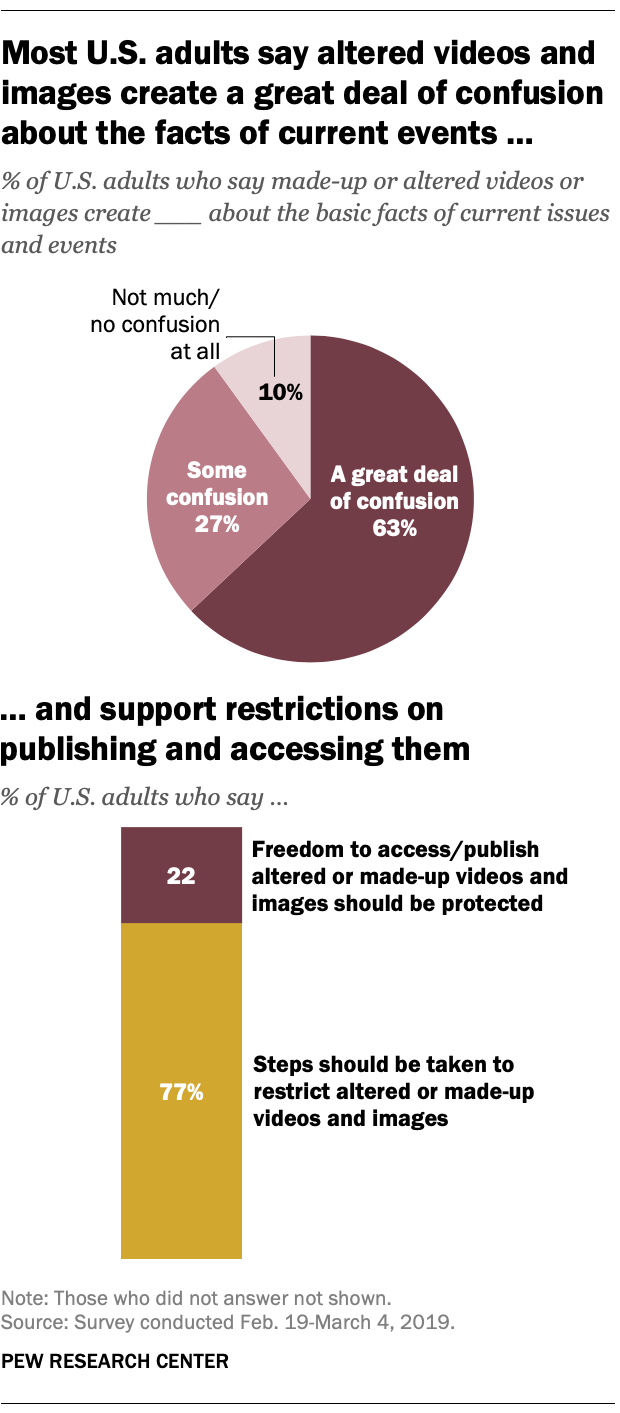☀️ Happy Thursday! The Briefing is your guide to the world of news and information. Sign up here!
In today’s email:
- Featured story: House passes bill that could ban TikTok
- In other news: Altered photo of British royals prompts media crisis
- Looking ahead: EU approves new law to protect press freedoms
- Chart of the week: How Americans view made-up or altered videos and images
🔥 Featured story
The House of Representatives passed a bill Wednesday with bipartisan support that would require TikTok’s China-based parent company to either sell the app or risk a ban in the United States. The legislation now heads to the Senate, where its fate is unclear.
While a majority of Americans said in May 2023 that TikTok is at least a minor threat to U.S. national security, support for a TikTok ban fell over the course of the year, according to a recent Pew Research Center survey. In fall 2023, 38% of U.S. adults said they would support the U.S. government banning TikTok, down from 50% who said the same in March 2023.
Overall, a third of U.S. adults (33%) say they use the video-based platform, and the share who say they regularly get news from TikTok has risen sharply in recent years, from 3% in 2020 to 14% in 2023.
📌 In other news
- How altered photo of Princess Kate caused a media crisis
- Sports blogging site Deadspin sold, all editorial staff to be laid off
- Some new digital media startups are finding success
- Don Lemon’s X show canceled before it debuts
- AP to launch e-commerce site to add revenue
- Thomson Reuters CEO says the company has $8 billion to spend on AI
- Prisa Media introduces new AI tool to detect Spanish-language deepfake audio
📅 Looking ahead
European Union lawmakers have approved the Media Freedom Act, a bill aimed at protecting news organizations from government influence, including spyware targeting journalists. The law will go into effect across the EU in 2025.
In a 2019 Center survey of 34 countries around the world, majorities across Europe said it is very important that the media can report the news without government censorship in their country. The survey also found that in Western Europe, those with populist views were less likely than non-populists to say the news media are very important to the functioning of their society.
📊 Chart of the week
In a 2019 survey, about three-quarters of Americans (77%) said steps should be taken to restrict altered or made-up videos and images, while just 22% said freedom to access or publish altered media should be protected.

👋 That’s all for this week.
The Briefing is compiled by Pew Research Center staff, including Naomi Forman-Katz, Jacob Liedke, Sarah Naseer, Christopher St. Aubin, Luxuan Wang and Emily Tomasik. It is edited by Katerina Eva Matsa, Michael Lipka and Mark Jurkowitz, and copy edited by David Kent.
Do you like this newsletter? Email us at journalism@pewresearch.org or fill out this two-question survey to tell us what you think.